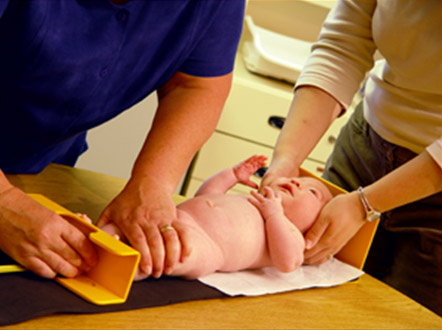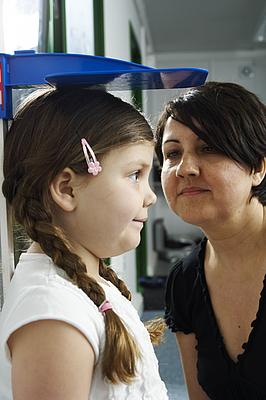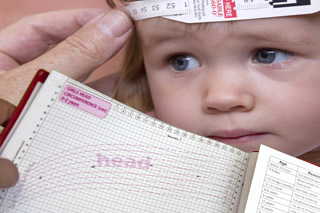Weighing and Measuring Infants and Children course


This session is an introduction to the techniques of accurate growth measurement and monitoring required for delivery of the Healthy Child Programme.
Learning Objectives
By the end of this session you will be able to:
- State at what age children should be measured according to the Healthy Child Programme and the National Child Measuring Programme
- List the equipment needed to weigh infants and children accurately and the correct technique at each age
- Explain the importance of monitoring weight gain after birth and know when weight loss is of concern
- Describe the equipment used to measure length and height in infants and children, and the correct technique to achieve accurate measurements
Assess head growth by accurate measurement of head circumference
This session is the first of two that address the importance of weighing and measuring infants and children and the implications of the results you obtain.
Gary Butler is a Consultant and Professor in Paediatric and Adolescent Endocrinology, University College London Hospital and UCL Institute of Child Health, Great Ormond Street Hospital.
He has a longstanding interest in growth and researching how it happens. His main area of clinical practice is problems with growth and puberty.

- Anaesthesia Fundamentals | Physiology | Ventilatio...
- Posted By eIntegrity Healthcare e-Learning
- Posted Date: 2024-12-26
- Location:Online
- This session describes how and why ventilation and perfusion vary in the healthy lung. Causes of hypoxia, such as hypoventilation, increased dead space and shunt, are discussed to help the trainee explain and manage hypoxia clinically.
- Anaesthesia Fundamentals | Physiology | Pulmonary ...
- Posted By eIntegrity Healthcare e-Learning
- Posted Date: 2024-12-26
- Location:Online
- This session covers the measurement and clinical importance of lung volumes, including functional residual capacity and dead space. Information regarding the performance and interpretation of flow-volume loops is also included.
- Anaesthesia Fundamentals | Physiology | Co2 Carria...
- Posted By eIntegrity Healthcare e-Learning
- Posted Date: 2024-12-26
- Location:Online
- This session covers the physiology of how carbon dioxide is carried by blood, including its conversion into bicarbonate ions and the role of the red blood cell and haemoglobin in this process. The session also describes how buffers work, and the fundament
- Anaesthesia Fundamentals | Physiology | Function o...
- Posted By eIntegrity Healthcare e-Learning
- Posted Date: 2024-12-26
- Location:Online
- This session focusses on the function of haemoglobin in oxygen (O2) carriage from the lungs to other tissues where cells are supplied with the O2 required for oxidative phosphorylation in the mitochondria. We will cover the structure
- Anaesthesia Fundamentals | Physiology | Gaseous Ex...
- Posted By eIntegrity Healthcare e-Learning
- Posted Date: 2024-12-26
- Location:Online
- This session will introduce you to the physiological effects of altitude and the adaptations that occur with acclimatization. It also introduces the pathology and physiology of high pressure and decompression.








